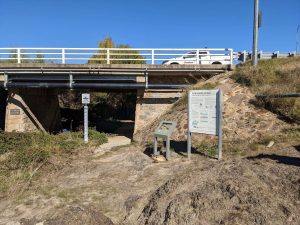Swine flu vaccine causes headaches across Australia
By LAUREN HAYWARD
About $70 million worth of the H1N1 vaccine, Panvax, bought by the Australian Government will go to waste.
The Government has donated more than two million of its remaining 14 million doses of Panvax to developing nations in the region, such as Laos and Fiji, however, having spent $120 million on 21 million doses the government owns $70 million worth of unused vaccine that expires at the end of 2010.
A surplus in vaccine heading into flu season would normally be preferable, however this year’s seasonal influenza vaccine, provided by the same company that produced Panvax, includes the H1N1 vaccine. This makes the 12 million H1N1 specific shots redundant.
It is not only economic wastage that is a cause for concern. The director of the Infectious Diseases
Unit and Microbiology Department at The Canberra Hospital and Professor at the School of Clinical Medicine at the Australian National University, Peter Collignon, suggests that the entire program is flawed.
Dr. Collignon says that the actual administration of the drug, from multi use-vials, increases the risk of spreading diseases such as Hepatitis and HIV, and there is inadequate follow-up for recipients of the vaccine, preventing a comprehensive understanding of the effectiveness of the vaccine and the scope of side effects experienced by recipients.
“In my opinion the entire program was flawed from the beginning,” he said. “It began as we headed into our summer, when there would be very little chance that the virus would spread. The production of the drug was rushed and corners were cut to save money, and as a result we are seeing some very nasty and concerning side effects such as anaphylaxis, paralysis and potentially the spreading of disease.”
Despite these concerns the Therapeutic Goods Administration (TGA) – the federal department responsible for the testing and roll out of new drugs including vaccine – maintains that there are adequate safe guards in place to ensure the safety of the vaccine.
Samantha De Silva, of the Office of Medicine Safety Monitoring at the TGA says that her organisation has created and maintained a system of reporting and collating adverse reactions and there is not enough evidence to corroborate Dr Collignon’s concerns.
“There is absolutely no evidence to suggest that Panvax is unsafe for the majority of consumers. There have been some adverse reactions but nothing that is not anticipated or unusual in the administration of a drug of this kind on this scale,” Ms De Silva said.
Despite the concerns of the safety of the drug, there is plenty of opportunity to be administered the vaccine as there are tens of millions of doses currently available in Australia. The decision lies with who can either receive the H1N1 specific vaccine for free, or pay to receive the comprehensive seasonal influenza vaccine, if they choose to be immunised at all. Contact your GP for further information about whether the vaccine is right for you.


concerned taxpayer
May 22, 2010 at 8:14 pmWhy be surprised. Nicola Roxon only rushed to squander 120 million on the vaccine so as to deliver CSL massive windfall profits - it clearly had nothing to do with public health. Presumably she and her family must have millions of CSL shares stashed somewhere, or or she is just incompetent in the health portfolio, or probably both. There again her boss Kevin Rudd is so incompetent he even makes Roxon look half credible - scary isnt it.